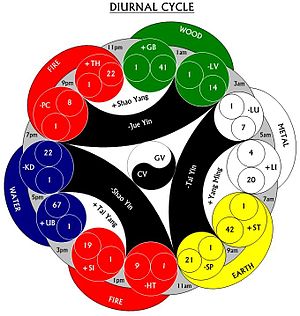Repost request from observer.
There are a set of basic, fundamental, needs all organisms have.
Energy assimilation (feeding, assimilation, integration, domination), Energy utilization (lubrication/conductivity, storage, preservation), Energy direction (willfulness/consciousness).
Primal Drives
From these all value judgments are produced.
Underlying them all is lack, the absence of an absolute.
We, as organisms with a certain nervous system with a processing hub/nexus (brain) feel this absence as need - suffering being need left unsatisfied, warning the brain and demanding its attentions.
The absolute, because it is absent, can take on any form; it can be imagined in any way it can be symbolized in any manner.
But this shaping of the absolute’s imagery, its conceptualization, is based on the experienced, the known…even the inherited, through the genes, experiences.
Therefore, the absolute’s varieties are restricted by the organism’s experiences (stored, as code, of interaction between organism and otherness/world), its knowledge (inherited experiences), and its imagination (ability to combine said experiences/knowledge in novel ways).
Then, the organism may project this abstraction of the absent absolute, as an object/objective…which will guide its willfulness, its striving.
The Will is a mental agency which directs the organisms aggregate energies, known and unknown, through the nervous system.
This movement towards creates the organism’s character, its personality shaped by how this movement towards is shaped by its inherited organic internal relationships.
Psychology being the internal structures of an organism, their weaknesses and strengths, and how these interact internally and then in relation to an alien, indifferent world.
The projected object/objectives can be shaped by external wills, by providing the brain with a set of imagery, accepts, and standard of measuring otherness as these relate to its original primal drives.
The object/objective will acquire a value depending on the dominance of each drive, within each particular organism, and the need associated with it, due to environmental conditions or circumstantial factors.
For instance feeding might be insignificant, under certain circumstances, and fundamental, central, in others… within the very same organism’s lifespan.
Values are dependent on standards.
The environment determines the standards.
Changing environments can result in changing standards.
The noble mind is characterized by a dominant will.
Its standards do not vacillate, as they do for weaker minds.
Order, is its character trait.
It makes it predictable, reliable, steadfast, loyal.
Its values are steady, and unyielding, and they might even be of a qualitative superior nature in that they are longer-lived, from a temporal perspective.
The only way a standards can be long-lived is if the brain can project further than the average brain, and see more than the average brain…and so construct values that are not as dependent on the ephemeral social, and/or environmental, circumstances.
The most vacillating brain is the Modern brain:
Shallow, weak-willed, cowardly… adapting to any slight change, altering its values with the slightest discomfort.
It is, in fact, proud of its own malleability… and considers itself open-minded, enlightened, progressive, because of it.
It’s weak-will, superficial awareness, stupidity, retarded psychology, feminine disposition, is twisted into a positive attribute, simply by changing the words, and the reasons… in true nihilistic form.



 [/tab]
[/tab]